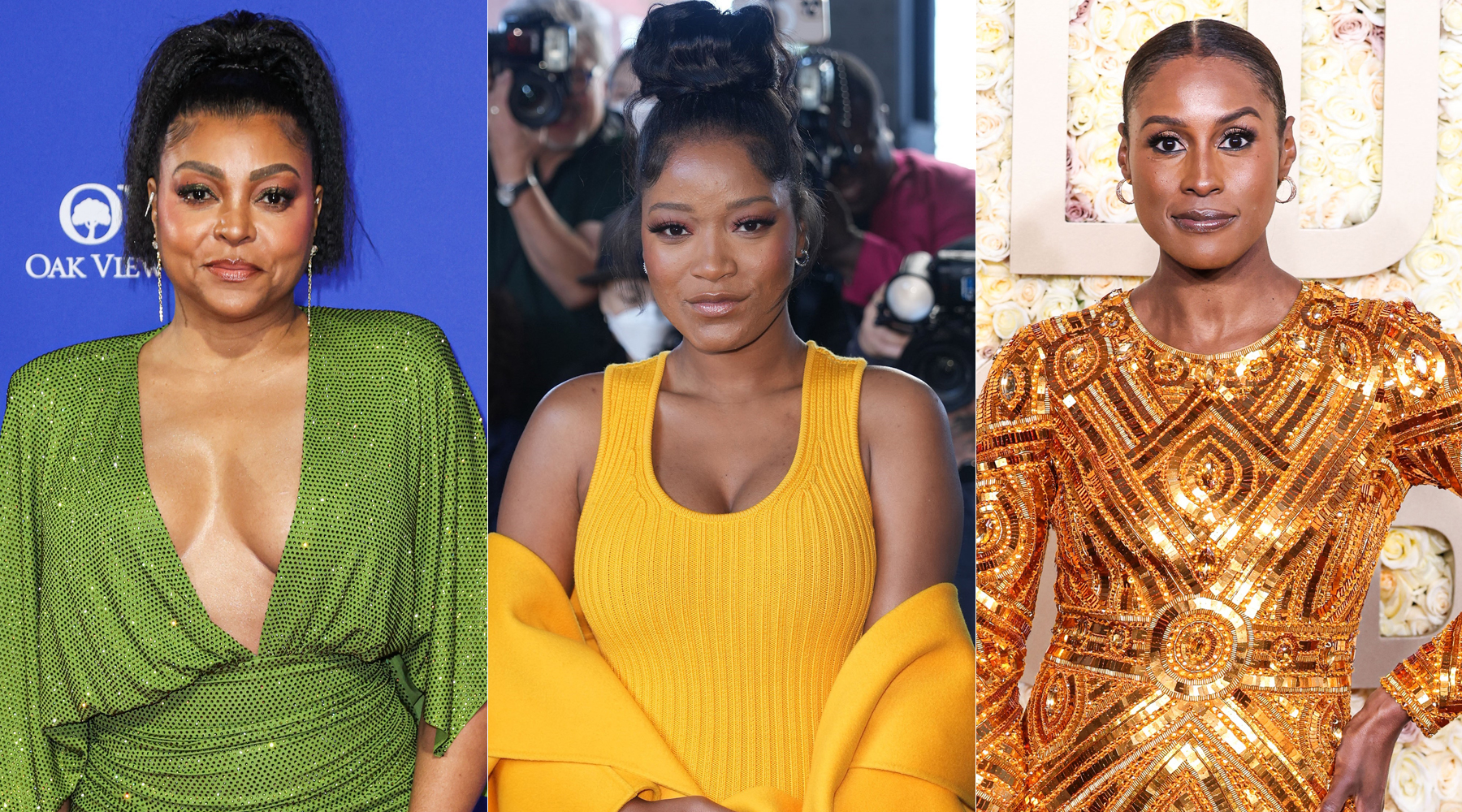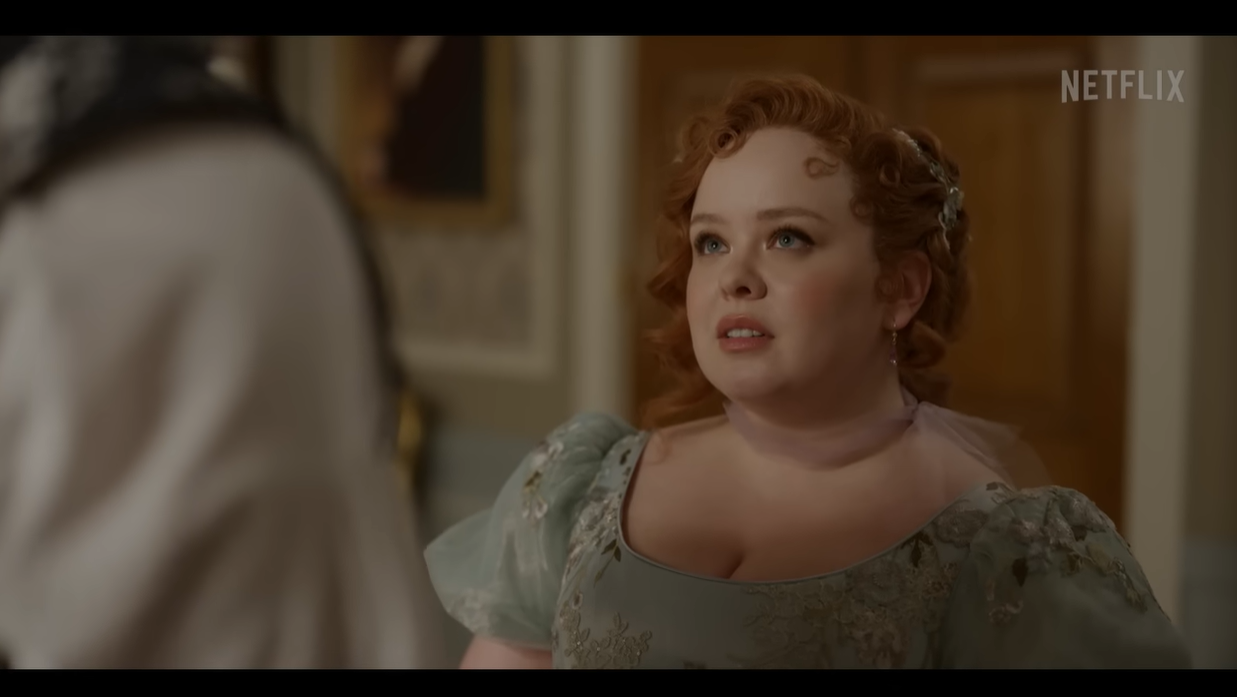The echoing frustrations of Taraji, Keke and Issa



In a recent conversation with Teen Vogue, superstar Keke Palmer opened up about her possible retirement from Hollywood, saying it’s likely to happen sooner rather than later.
“I don’t know. I think the timer has started,” she said. “I think it’s because I just haven’t felt it yet. But the timer, I know that it’s around the corner. I don’t know when exactly, but it’s around the corner.”
Until then, she’s still got some projects on the go for the foreseeable future, like Good Fortune. Interestingly, Keke was only a recent addition to the film, being added to the cast when production resumed after the writer’s strike. And you’ll also see her in Jennifer Lopez’s movie This Is Me, which comes out in mid-February.
With her career seemingly at an all-time high, what could possibly motivate Keke to want to step away from tinsel town now? It’s a pretty shocking revelation considering she’s only 30. But on the heels of some landmark conversations that have been taking place lately among Black women surrounding their frustration and exhaustion over a severe wage gap in Hollywood, it doesn’t really come as a surprise. It sounds to me like Keke’s true desire isn’t necessarily to leave Hollywood, as much as it is to change her role within the ecosystem of it.
This feeling of considering retirement is something we’ve recently heard about from Taraji P. Henson, who, back in December, nearly broke the internet during an emotional interview with Gayle King where she spoke candidly about her frustrations over the Hollywood wage gap – which in her case, is impacted not only by her gender but also her race. When Gayle asked her whether she was quitting acting, she revealed that it was, indeed, a thought.
Since then (and long before the interview, really), several Black women in Hollywood have come forward to echo Taraji’s claims, including the likes of Gabrielle Union, Robin Thede and yes, Keke Palmer, who penned this thoughtful post explaining why she was always up to something, professionally, earning her the nickname Keke “Keeps A Job” Palmer.
But despite Taraji’s conversation and revelation, it was announced yesterday that she, too, still has projects in the works, and would be joining a Peacock limited series called Fight Night: The Million Dollar Heist. There, she’ll be working alongside Kevin Hart, Samuel L. Jackson and Dexter Darden, as well as Terrence Howard and Craig Brewer, both of whom she worked with on Hustle & Flow and Empire.
On the heels of such a powerful, relatable and landmark conversation, taking this job suggests that like Keke, Taraji doesn’t really want out of Hollywood. Perhaps what she really wants is change, which begs the question of whether she’s going to get it. And for the foreseeable future, I think it’s safe to say she won’t. Not to the extent she might hope, anyway.
As Cody wrote in December, she’s been fighting the same fight for 25 years now. And as Keke echoed, the reason she does so many jobs is because in Hollywood, you can’t just be one thing anymore. So for people who really just enjoy acting, it means becoming a spokesperson for brands you may or may not care about. It means becoming an entrepreneur, developing a product, or perhaps a brand. But doing all these things when really, all you want to do is act can lead to burnout. Add to that the frustration that Taraji described about seeing someone who doesn’t look like you earning more than you do, or making a quicker ascension to the top while you, instead, have been making what feels like a painfully slow climb despite your accolades, well, that would frustrate me, too.
Keke also touched on this concept in a recent podcast episode with Bobbi Althoff, flat out asking her whether she was an industry plant, questioning how she managed to snag interviews with the likes of Drake, Lil Yachty, Michael Cera and Offset, while Keke has been working towards being a celebrity in her own right for the last 20 years. And though it seemed like a tongue in cheek remark, people in the comment section of the YouTube video, as well as the clips that surfaced on social media were thrilled that she asked that question. Sadly, it’s not just in acting or podcasting that we’re seeing a disparity between wages and the success rate for white versus Black people. It’s across industries.
In mid-January, this tweet went viral after a Twitter user “thanked” designer and NFL wife Kristin Juszczyk for “proving” that women’s sports merch can be fashionable. People flooded the replies with images of Black women over the last 20 years wearing sports merch, including Raven Symone, Mya, Destiny’s Child, Mariah Carey, Cardi B, Ciara and so many others to illustrate just how long this has been a thing, albeit, with no mainstream credit given like we’re seeing with Kristin. By the end of January, Kristin had landed a licensing deal with the NFL, further prompting outrage and conversations about why, when Black women do something, it never counts until a white person does it, or worse, imitates or appropriates it.
Another Black woman that’s been discussing the need for a career pivot is Issa Rae. Despite playing a major hand in the success of two of the most-talked about movies in recent history, American Fiction and Barbie, she described how the changing industry is marginalizing Black creators, writers, actors and stories. In a recent cover story with Porter, Issa says the landscape changes mean less Black stories are being told.
“You’re seeing so many Black shows get cancelled, you’re seeing so many executives – especially on the DEI side – get canned. You’re seeing very clearly now that our stories are less of a priority,” she said.
This is so interesting, because it wasn’t long ago that in the wake of George Floyd’s murder, there was this barrage of shows and scripts centred around Black people and Black stories that were being greenlit. There were all these promises made to Black writers, directors, and actors about their creations, their work, their art being of importance. Yet, just four years later, with the streaming bubble bursting, the picture paints itself over which stories matter and which stories don’t. All the promises made by major studios are being labelled as ‘performative’ in this Variety article that does a deep dive into whether they made good on their pledges to hire more women filmmakers and people of colour.
Even outside of Hollywood, the performativity of the pledges made in 2020 are being felt on a micro-level. Recently, a Black Toronto creator named Amanda Parris appeared on a radio station to promote her new documentary series, For The Culture, echoing Issa’s sentiments and asserting her hope that her show would be granted a second season, considering all those promises made by media companies a few years ago.
In the Porter piece, Issa describes feeling pessimistic over no one being held accountable, and not being able to force anyone to make her ideas come to life, forcing her to move more towards being independent down the line.
“I want, in 10 years’ time, to be transitioning towards service…This is fun, but at some point, it’ll feel like not enough – and I want to be able to do more,” she says.
You can’t help but wonder if that’s a direction she’s going in out of free will or obligation. And I think that is one of the saddest realities Black women in Hollywood face. Often times, they’re forced to do more to solve the problems that exist, which in turn, take them away from the things they love doing.
We’re seeing Keke do something similar with her digital network, KeyTv. Last year, KeyTv celebrated its first anniversary. The network prioritizes creators, especially ones with underrepresented voices, and with her small but mighty team of Keke and three others, they’re looking to help elevate and serve as a platform where young creatives and industry professionals can connect and network with each other.
Keke is the exact generation Taraji has been fighting for. And Issa fought so that Black content creators like Amanda can produce their art and have it matter just as much as a white person’s. But every direction each one of these women turn, whether in smaller, local scenes or in the huge ecosystem that is Hollywood, they’re essentially being told that white stories matter more, homogeneity matters more. And that, in turn, forces them in different directions.
If there’s one thing Black women are masters at, it is the pivot. But pivoting out of choice and necessity truly are two different things. Being resilient is great, but not greater than not having to be.

